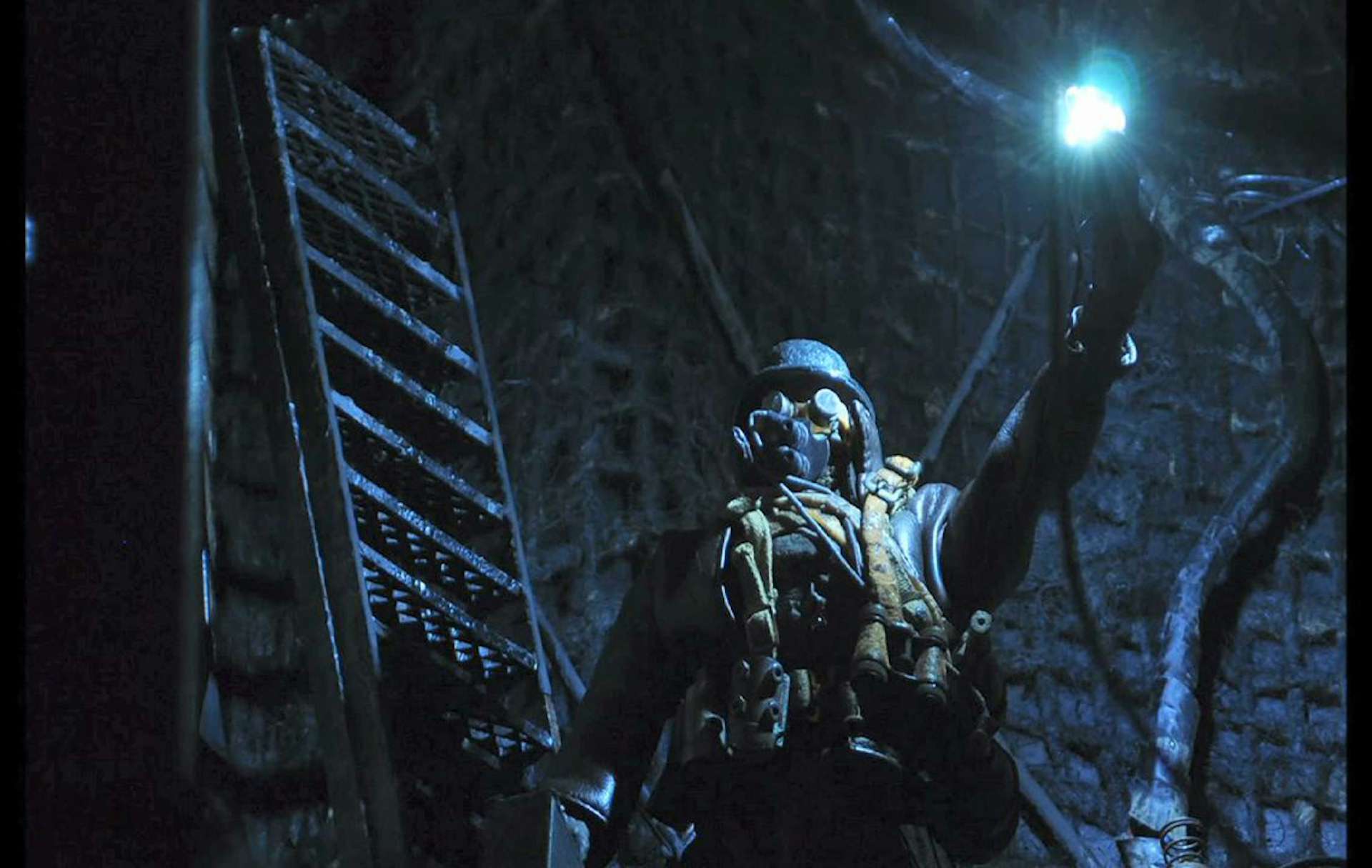
Locarno wrap-up: the supernatural, blood and the challenge of genres

Having watched 29 features during Locarno’s film marathon, one theme stands out: the supernatural, tilting towards religion and fantasy. A symptom of (post-?)pandemic existentialism and (post-?)pandemic escapism?
When #LocarnoCloseup asked our impressions of this year’s Locarno Film Festival, the first words that came to mind were “blood”, “naked women” and “ghosts”.
We are usually uneasy making overall judgements of a festival because we risk sounding unfair towards the variety of film proposals. That’s why at Filmexplorer.chExternal link we’re focusing on individual works to avoid generalisation. Yet, one theme stands out more than others among the 29 features we watched: the supernatural – tilting towards religion or fantasy. Is this a symptom of (post-?)pandemic existentialism or (post-?)pandemic escapism? It’s difficult to say.
Portraying the supernatural does not necessarily imply overcoming naturalist storytelling. Masterfully crafted, both can combine powerfully – as in the Swiss film Soul of a Beast, Juju Stories (Nigeria), The River (Lebanon), Espíritu sagrado (Spain), Holy Emy (Greece), Virgin Blue (China) and Zahorí (Chile), just to mention some of the titles from the main competitions. Should we call it “Super-naturalism”?
Taking genre cinema seriously
Now, speaking about form – yes, there is still someone interested in form… Rather than coining new “-isms”, we’d just like to point at the dominance of genre cinema, at least in the competitions. Is this Giona A. Nazzaro’s new trademark? Is genre cinema the artistic director’s weapon to give shape to his outspoken ecumenism?
An “all-genres cinema” would certainly work for a tutti-i-gusti film festival. Which would definitely be a reductive interpretation of the affirmation of genre cinema at the Locarno Film Festival.
We should take genre cinema seriously, instead, and recognize that many films in the competitions do not just reproduce a format and its clichés for the pleasure of the genre fans, but that they play with the formats and their clichés, often mixing them together.
This is the case with some wonderful films, like Edwin’s Vengeance Is Mine and All Others Pay Cash from Indonesia that explicitly displays a genre and vintage patina to convey urgent contemporary questions; Kofi Ofosu-Yeboah’s Public Toilet Africa (Ghana), where genres mix up to be eventually deviated in a highly original and non-linear road movie; Araceli Lemos’s Holy Emy (Greece) and its poetic disturbance between documentary and fantasy; or the festival of possibilities that is Abel Ferrara’s Zeros and Ones, which makes a smart impressionist tableau with several genres.
All of these films start with genre cinema in order to develop an original language and provide us with an unprecedented filmic experience. So let’s celebrate this use of genre cinema! Otherwise we risk falling into the traps of cinephilia or empty mannerism.
It is all about discoveries
For us, cinema is all about discoveries, and we prefer the unknown, no matter how uncomfortable, to a satisfying well-known. We prefer active experience to passive entertainment.
“We should not be ashamed to have fun”, said Nazzaro to the Critics Academy at the start of the festival. We acknowledge the anti-intellectual (good) intention, but we cannot avoid a critical question: haven’t we had already an exuberant offer of fun cinema around, from Hollywood moralistic adrenaline to the infinite plethora of French and German melodramatic comedies?
In any case, it was so nice to see, once again, the festival audience coming out of the theatres positively puzzled, full of open questions. “Discussion” will remain our favourite word, certainly preferable to the overused “emotion”.
As for “discovery”, we’d like to conclude by mentioning some filmic journeys that particularly impressed us: Phil Tippett’s metaphysical delirium of Mad God, Natalya Kudryashova’s dark trip of Gerda, Elene Naveriani’s hieratic drama Wet Sand, Kit Zauhar’s subtle picture of American middle class in Actual People, Niu Xiaoyu’s intimate exploration of childhood in her Virgin Blue. Or back to reality, through the strong selection of documentaries in the section Semaine de la critique and Arami Ullón’s ethnographic pioneering work in her Apenas el sol.

Giuseppe di Salvatore and Ruth Baettig are the duo behind the multimedia film e-journal filmexplorer.chExternal link, based in Basel.

In compliance with the JTI standards
More: SWI swissinfo.ch certified by the Journalism Trust Initiative





























You can find an overview of ongoing debates with our journalists here . Please join us!
If you want to start a conversation about a topic raised in this article or want to report factual errors, email us at english@swissinfo.ch.